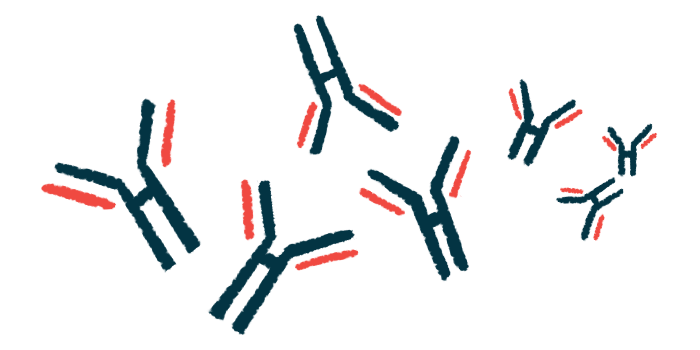Epstein-Barr Virus Reactivation Studied in SSc Patients
Higher levels of EBV antibodies found in people with systemic sclerosis
Written by |

People with systemic sclerosis (SSc) show higher levels of certain antibodies against the Epstein-Barr virus, which is suggestive of dormant viral infections becoming reactivated in these patients, a new study shows.
The study, “Detection of Epstein–Barr virus in systemic sclerosis patients: A molecular and serological based study,” was published in the International Journal of Rheumatic Diseases.
Epstein-Barr virus, or EBV, is known mostly for causing infectious mononucleosis (colloquially called “mono”). This virus also can cause unspecific flu-like illnesses, and the majority of people are infected with EBV at some point in their lives.
After an EBV infection, the virus can reside inside the body’s cells in an inactive state, with the potential to reactivate later on. This kind of latent infection has been implicated in the development of autoimmune diseases such as multiple sclerosis (MS). However, the relevance of EBV in scleroderma remains incompletely studied.
In this study, scientists in India analyzed blood samples from 150 people with SSc, as well as 45 people without the disease (controls). Both groups were similar in terms of age, averaging around 40 years, and most participants were female.
Compared to the controls, scleroderma patients were significantly more likely to have certain antibodies against EBV. Antibodies are proteins made by the immune system to respond to infectious threats that can target a particular viral protein.
Specifically, scleroderma patients had significantly higher rates of IgM antibodies against the EBV proteins VCA gp125, VCA p19, EBNA1, p22, and EA-D. They also had higher rates of IgG antibodies against p22 and EA-D.
IgM and IgG are two different classes of antibodies produced at different points in the immune response. According to the researchers, this pattern of elevated antibodies among the scleroderma patients suggests these individuals are more likely to be experiencing reactivation of latent EBV infection.
“Our study showed a higher frequency of class IgM antibodies against VCA gp125, VCA p19, EBNA1, p22, EA-D, and class IgG antibodies against p22 and EA-D reactivities in SSc patients compared to controls, implying a strong humoral [antibody-driven] response against EBV antigens and a significant association of viral reactivation with SSc patients,” the scientists wrote.
However, when the researchers tested for EBV DNA in participants’ blood, only 2% of scleroderma patients tested positive, as did 2% of controls. This suggests that, despite the antibody pattern suggesting more reactivation in scleroderma patients, these individuals don’t have higher amounts of the virus itself in their blood.
These results indicate that the elevated levels of anti-EBV antibodies “is not caused by an elevated viral load in the circulation or the inability to control systemic EBV infection,” the researchers wrote.
Noteworthy results
This finding is particularly noteworthy because in other autoimmune diseases like MS, the main type of cells that have been implicated in disease-related EBV reactivation are B-cells, a type of immune cell that resides mainly in blood. If EBV reactivation was occurring in scleroderma patients’ B-cells, it would be expected that these patients would have higher levels of viral DNA in their blood, contrary to the researchers’ findings.
“Thus, the study indicates a serological activation of EBV (reactivation stage) in SSc patients in the absence of EBV DNA in blood, suggesting the EBV reservoir is present somewhere else,” the team wrote.
The scientists speculated that EBV reactivation might lead to pro-scarring responses in its cellular target/reservoir.
“The source of the blood’s anti-EBV humoral response should be examined, as the cellular source is unknown, which is a limitation of our study,” the researchers wrote.
Another noteworthy limitation is that all SSc patients in this study were taking immune-suppressing medications to help manage their disease. While other studies have generally not shown that such treatment can prompt EBV reactivation, the researchers noted they “cannot exclude the possible role of immunosuppression on EBV reactivation in this study.”






